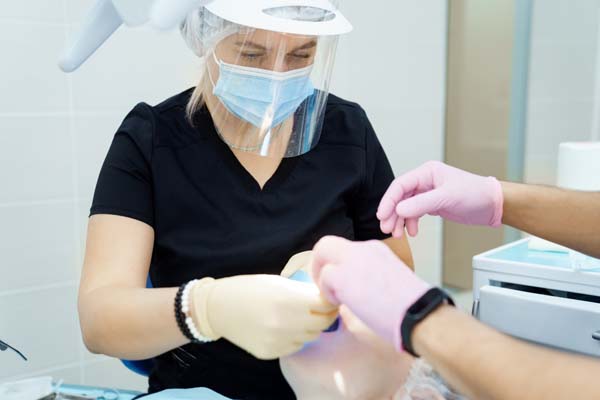How Long Is Recovery After Wisdom Tooth Extraction?
is a procedure that is not typically enjoyable but is often necessary in order to eliminate pain and crowding within the oral cavity. Individuals that are preparing for wisdom tooth extraction may find it helpful to get familiar with the recovery process, which can be involved, depending on the number of teeth removed.
Recovery after wisdom tooth extraction
Below is an overview of the recovery process after wisdom tooth extraction, including how long it takes and what to expect.
The timeline
The recovery process after a wisdom tooth extraction is categorized into two parts, with the first being the short-term timeline and the second being long-term. Both parts are important to be familiar with prior to the procedure.
Short-term
Immediately after a wisdom tooth extraction, individuals will likely feel disoriented and uncomfortable. The disorientation comes from the medication that can be administered prior to the procedure and the discomfort stems from the extraction itself. The effects of medication usually wear off within a few hours; however, the discomfort does last up to four to five days, depending on the number of teeth pulled, as well as the individual's ability to heal.
It is recommended that physical activity be limited, work and school are avoided, and soft or liquid-based foods should be all that is eaten. Additionally, using ice and cold compresses can be helpful in reducing swelling and inflammation, both of which usually calm down within two to three days.
Most people recover within the first four to five days, meaning work and school can be resumed. It may still be helpful to avoid foods that are hard, chewy, or sticky, as this could cause damage to the wounds as well as pain. Additionally, medication will likely continue for a week or so.
Long-term
Long-term, the wisdom tooth recovery process can last up to a month or two. While the individual will not likely feel pain or discomfort past a week or two, the wounds inside the oral cavity will still be tender and undergoing the healing process. The soft tissues can take a long time to get back to normal because the mouth is constantly wet, which makes it hard to properly heal.
It is highly recommended to avoid smoking, spitting, or drinking through a straw for at least a month. The inhalation can cause extra pressure on the wounds, which can result in dry sockets, a painful condition that can follow wisdom tooth extraction. Additionally, for at least a month, it is recommended to avoid foods that can cause irritation or pain to the healing wounds. These may include jerky, meat with bones, taffies, candies, and gum.
Find out more about wisdom tooth extraction
When looking for further information on the wisdom tooth extraction process, it can be helpful to consult with a general dentist. A consultation can help identify expectations and specific ways to prepare. Reach out today to ask questions or to get started with an appointment.
Request an appointment here: https://www.hudsonerdental.com or call Hudson ER Dental at (201) 620-9574 for an appointment in our Bayonne office.
Check out what others are saying about our dental services on Yelp: .
Related Posts
A wisdom tooth extraction is often necessary in order to create room in the mouth as well as to help avoid or relieve pain. While the procedure itself is common and generally goes well for most patients, it is important is to know the steps to take to fully recover afterward. Recovery varies for every…
Wisdom tooth extraction is a common procedure. Although the idea of having a permanent tooth removed is unpleasant at any age, it is sometimes unavoidable. When it comes to the last set of molars, called the wisdom teeth, there are many common myths about them. These misconceptions can prevent people from getting the dental care…
Dental emergencies can happen anywhere and at any time, so it is beneficial to have an emergency dentist. You should find a dentist before the need arises. Experiencing any dental emergency is bad enough without having to prolong the suffering and pain while looking for a dentist. No one wants to be in a position…
A dental emergency can happen when your teeth, gums or jaws are injured. Even if you have what seems to be a mild injury, it can cause serious problems to these areas later. For example, an injury that damages the pulp of the tooth may kill the pulp and cause the need for a root…
